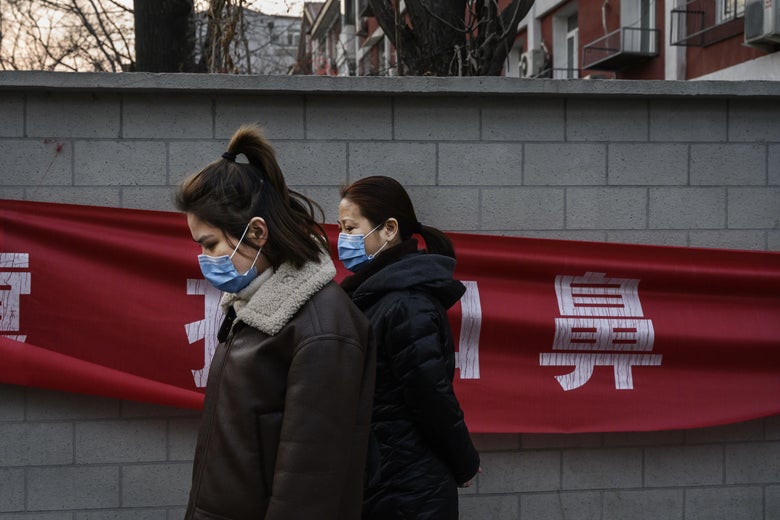In an episode of another illness, words have incredible force.
So far in the spread of Covid-19, the World Health Organization has studiously maintained a strategic distance from single word specifically: pandemic. At a press instructions on March 3, senior WHO official Michael Ryan advised against “the dangers of using the pandemic word.” The huge stress is that it may incite governments to unnecessarily or rashly change their techniques in manners that could undermine their endeavors at regulation.
So what might it truly mean to call Covid-19 a pandemic? We should separate it.
What is a pandemic?
WHO’s definition is “the worldwide spread of a new disease.” Although instances of Covid-19 have seemed “worldwide,” it’s not satisfactory, at any rate outside of China, that there is supported nearby transmission of the contamination. As it were, most cases can in any case be followed to go in hotspot territories.
On March 3, Anne Schuchat, head agent chief of the US Centers for Disease Control and Prevention, told a Senate board that “if sustained person-to-person spread in the community takes hold outside China, this will increase the likelihood that the WHO will deem it a global pandemic.”
In an episode of another infection, words have incredible force.
So far in the spread of Covid-19, the World Health Organization has studiously maintained a strategic distance from single word specifically: pandemic. At a press instructions on March 3, senior WHO official Michael Ryan forewarned against “the dangers of using the pandemic word.” The huge stress is that it may provoke governments to unnecessarily or rashly change their systems in manners that could undermine their endeavors at control.
So what might it truly mean to call Covid-19 a pandemic? they should separate it.
What is a pandemic?
WHO’s definition is “the worldwide spread of a new disease.” Although instances of Covid-19 have seemed “around the world,” it’s not satisfactory, at any rate outside of China, that there is supported neighborhood transmission of the contamination. At the end of the day, most cases can in any case be followed to go in hotspot territories.
On March 3, Anne Schuchat, head delegate executive of the US Centers for Disease Control and Prevention, told a Senate board of trustees that “whenever supported individual to-individual spread in the network grabs hold outside China, this will improve the probability that the WHO will esteem it a worldwide pandemic.”
All things considered, Dumois stated, the moniker may impact the manner in which nations defy the episode—and whether those progressions would be an improvement involves banter.
How could a solitary word change how nations approach the infection?
General wellbeing authorities have two fundamental ways to deal with controlling episodes: regulation and moderation. Utilizing “pandemic” could urge them to concentrate on the last mentioned.
Control occurs at prior phases of a flare-up, when it despite everything may be conceivable to disconnect in danger populaces and shield them from spreading the infection to all of us. The systems for this incorporate distinguishing the source, following contacts among people, and initiating isolates and travel bans. That approach was to a great extent compelling in easing back the spread of SARS in 2002, and in the West Africa Ebola flare-up of 2014 to 2016.
Be that as it may, when separating an ailment is never again useful, it might be a great opportunity to rotate to relief. By then, governments accept that contaminations can happen anyplace, and decrease the probability of spread by shutting schools and prescribing the deferment or cancelation of occasions where heaps of individuals are in contact.
WHO regularly saves the “pandemic” mark for new forms of this season’s flu virus (the last time the term was utilized was for 2009’s H1N1 “swine flu” flare-up), which can spread between individuals so effectively that control is normally an act of futility. Pandemics, as it were, are normally thought of as being best battled with relief.
“Using the term would help in some peoples’ minds create that shift from containment to mitigation,” Dumois said. However, there’s not yet an accord among general wellbeing specialists on whether that move is expected to address the novel coronavirus.
Previous CDC chief Tom Frieden cautioned that a Covid-19 pandemic is “inescapable,” and prescribed that nations start to make moderation strides. Be that as it may, inner WHO notes circled on March 4 and imparted to Quartz propose the office doesn’t at present observe coronavirus as an either-or circumstance. “The world is in a regulation stage and we’re seeing achievement,” the notes declare. In any case, they proceed to caution that “the twofold decision among control and relief is regularly not intelligent of the ground reality,” and that a “mixed methodology might be the best at managing territories of differing paces of the infection.”
How could the pandemic moniker change other open reactions to the infection?
WHO chief Tedros Adhanom Ghebreyesus has cautioned that calling Covid-19 a pandemic could make superfluous frenzy, or brief sudden spikes in demand for medical clinics and human services supplies. WHO was condemned by certain analysts in 2009 for considering swine influenza a pandemic, which may have added to overburdened medical clinics at that point.
On the other side, calling Covid-19 a pandemic may fortify the case for the World Bank to discharge assets from a $320 million pandemic bond it set up after the West Africa Ebola flare-up. The reserve is intended to help creating nations react to an emergency like this—despite the fact that the bond won’t pay out until 12 weeks after a flare-up starts. For Covid-19, that won’t be until late March.
Disclaimer: The views, suggestions, and opinions expressed here are the sole responsibility of the experts. No journalist was involved in the writing and production of this article.


